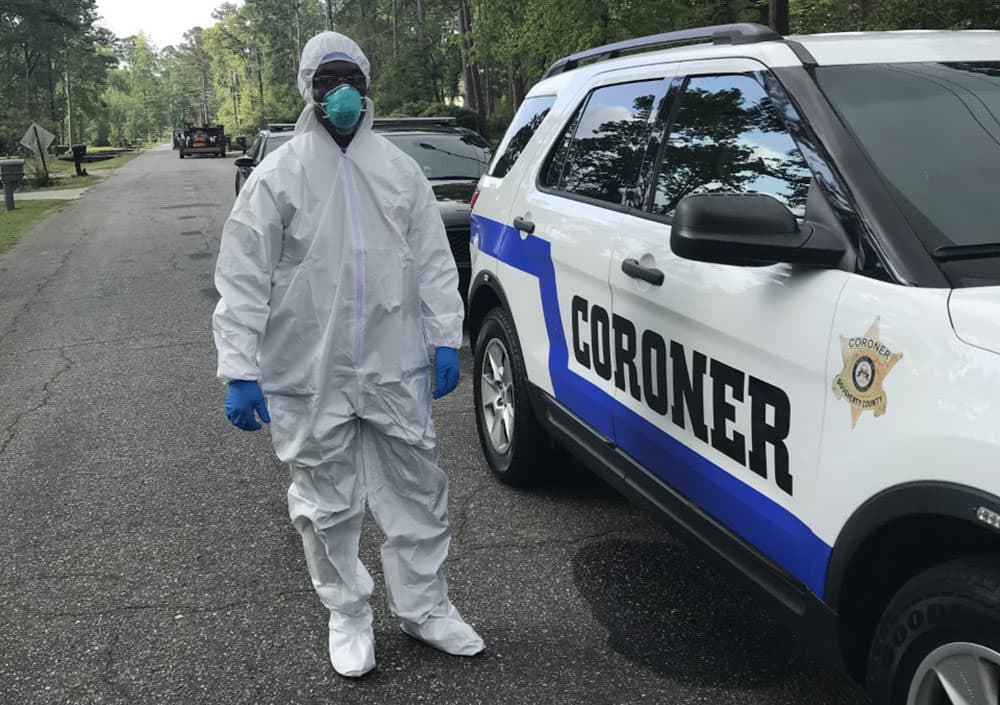Advertisement
'We Don't Have Room To Keep Bodies': Georgia Coroner On Coronavirus Impact

Coroner Michael Fowler is working around the clock in Dougherty County, Georgia, where new cases of the coronavirus continue to pop up.
There have been at least 890 deaths from COVID-19 in the state of Georgia, which is starting to reopen some businesses on Friday. The highest death rate is in Dougherty County with more than 100 deaths from the virus.
In some cities, body bags are piling up and officials are storing them in freezers because the number of deaths is outpacing the ability to handle them. Fowler says his area is better equipped than it was three weeks ago when officials were running out of body bags and morgues were overcapacity.
Now he says morticians have enough body bags and necessary personal protective equipment [PPE], but funeral homes are still struggling to keep with the pace of death.
“They had said the same thing: We don't have room to keep bodies,” Fowler says. “They [are] kind of processing funerals quicker and cremation a little bit quicker now than they normally do because they have so many bodies stacking up.”
A lack of available gravesites and a limit on the number of family members who can visit gravesites means that families can’t hold proper funerals. This means they can’t get complete closure, Fowler says.
“The families can't go back and see them, so you're not even able to say goodbye to them,” he says. “So the virus came down on them, they rushed to the emergency room and they just died.”
Not only has the number of deaths made Fowler’s job more physically and emotionally taxing, but he says the nature of the coronavirus has changed the way he comforts families who are grieving. He says many people who have lost loved ones are in “shock and disbelief” that it happened to them.
“I usually go into a house with a suit and tie on, sit with the families, shake hands, pray with them, comfort them,” Fowler says “Now, I have to go in with a Tyvek suit, mask, gloves ... and stay my six feet away.”
Fowler, who has worked in 23 major disasters including Hurricane Maria and the 2004 tsunami in Thailand, says this crisis is different because it’s a “hidden disaster.” It’s also more difficult for him because he knows the people who are dying.
Advertisement
“When you go to Puerto Rico, go to Haiti, I didn't know the individuals, so it was a job that I had to do,” he says. “But now it's more personal because it's friends that you know, coworkers that you know, family that you know that's dying on the ventilator.”
He says his faith and those past experiences working in disasters have prepared him for this moment.
“I feel that I need to be there for the families to help them through this process of grieving and dealing with the loss of their loved one,” he says.
While Fowler urges people to continue practicing social distancing as the state starts to reopen, he acknowledges that it is particularly difficult for people in his South Georgia community.
“We love shaking hands, we love hugging and putting arms around one another, bumping one another, but now it's different,” he says. “We can't do that now.”
Marcelle Hutchins produced and edited this interview for broadcast with Tinku Ray. Samantha Raphelson adapted it for the web.
This segment aired on April 24, 2020.

